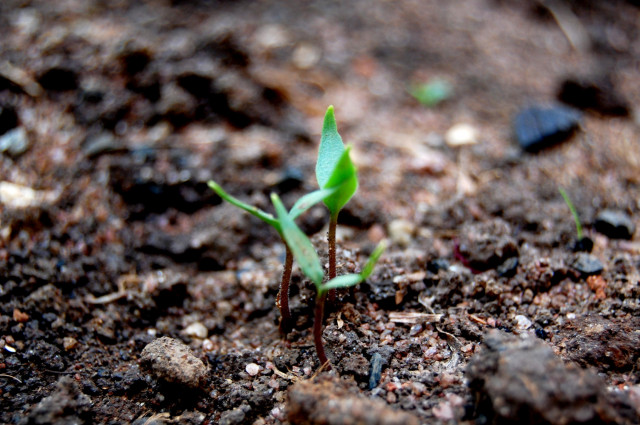Karachi’s Clifton beach to sport an urban forest
45 different kinds of saplings planted along coastline

The Clifton beach, the most frequent recreational spot for Karachiites, has long since been dotted with heaps of garbage and industrial waste.
The rot is punctuated only by concrete structures - restaurants, malls or offices, high-rise residential buildings - and barren stretches of land. It is here that Masood Ahmed Lohar has camped out for over a month.
He has spent his days, along with a team of volunteers, toiling away to rid three acres of land of debris, litter and industrial and medical waste.
His nights were spent in a make-shift tent with the sea breeze providing little respite from the stench of an unkempt beach. And on Monday, with the inauguration of an urban forest that is to sprawl across 200 acres of land, at least, his efforts were rewarded.
At least 45 different kinds of saplings, mostly native ones, have now been planted at the site that was once the most convenient waste dumping ground for all and sundry.
"It is a thick forest we are going to set up," said Lohar, who heads a non-governmental organisation, Sindh Radiant Organisation.
It will be multi-layered and an incredible site for citizens, he says beaming. The urban forest, launched in partnership with the Sindh government, has been conceptualised under the Miyawaki method.
Read More: PM launches urban forestry on lines of Miyawaki method to fight pollution
The technique pioneered by Japanese botanist, Akira Miyawaki, enables a dense forest to grow in small areas 10 times faster than usual. Lohar intends to plant one million Salvadora persica, or Peelu or Khaber as known in the local parlance, on the urban forest that stretches from Dua Chowrangi till near the China Port.
"We will plant all sorts of local fruit trees in this forest," said Lohar speaking to The Express Tribune. The project is expected to see completion in the next three to five years. "It is hard to stay here day and night. I got sand in my eyes and lost my skin colour. It is a challenge but as a Pakistani I accept this challenge," he says of his efforts thus far.
It is since January 8, 2021, that the make-shift tent near the forest has been his home. Elaborating on the hurdles faced by him and his team before the forest could be inaugurated, Lohar said that it was almost impossible to plant a tree on the site.
"We were just digging plastic. It seems this spot has been used as a garbage dumping site." Lohar, who is the former country head of the United Nations Development Programme's GEF Small Grants Programme, said that he has invested around Rs75 million in the past one and a half month.
Over a dozen volunteers from various areas of the metropolis, including Neelam Colony, Sheerin Jinnah Colony, Korangi, and from Thatta, Badin, Hyderabad, Umerkot and Thar, have toiled away along with Lohar since January 8.
Besides, thousands of trees from different cities such as Badin, Thatta, Hyderabad, Tando Jam and Lahore have been transported to the site.
"Transporting trees to Karachi is a challenge but we see trees growing well and that gives us strength," says Lohar.
For Lohar and his team, the rewards promised by the forest are unending. Along with the climatic benefits, they look forward to a healthy ecosystem of plants and animals thriving in the forest. "We have recorded 42 birds, including 29 native birds," said Mir Altaf Hussain Talpur, who looks after the flora and fauna around the site.
Talpur is hopeful that native birds will frequent the forest without disturbance. Similarly, Lohar is hopeful that the forest will help reduce heat waves that plague the metropolis in the summer season.
Speaking at the inauguration ceremony on Monday, adviser to Sindh CM on environment, climate change and coastal development, Murtaza Wahab, said that it was a pity that no special measures had been taken thus far to develop the coastal belt of Karachi.
"Gone is the place where there was garbage before. [Now] there is a pleasant atmosphere here," he said as he briefed the media on the project, which has been launched under the public private partnership mode.
For Lohar, the inauguration is just the beginning of what is to come. He has a nursery on the outskirts of the city, which houses over 30,000 papaya trees, he tells The Express Tribune.
Sharing his initial plans, he says, he will soon be planting them in the forest. "I want to see this dream come true. It is nothing but my passion and we are all emotionally attached to this forest."


















COMMENTS
Comments are moderated and generally will be posted if they are on-topic and not abusive.
For more information, please see our Comments FAQ